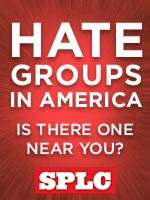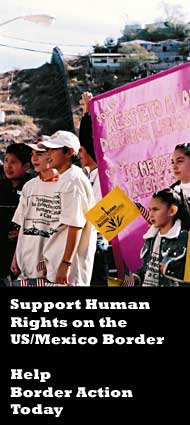Bob Herbert's column this morning, "Spies Like You and Me" (New York Times), is well worth a read. It's a relief to see anyone draw the line on abusing undocumented workers, but because of the skill with which Republican hate mongers have pitted African American workers against Hispanic workers, it's especially good to see an African American draw the line.
Regarding a question posed to Democratic presidential candidates, Herbert wrote:
'You interview a number of applicants,' Mr. Inskeep said. 'They all seem very nice. They seem like they would take care of the kids. But it would appear that their documents may not be in order. What would you want an American to do?'I love this. I love it that Herbert has taken the matter from the fairly austere confines of labor to the heart of the matter: family.
Their documents may not be in order.
Mr. Inskeep didn’t make clear what should trigger the suspicions of such oh-so-solidly American parents, causing them to scrutinize an applicant’s papers with a thoroughness worthy of Sherlock Holmes. Might it be a skin tone darker than Paris Hilton’s? Or maybe an accent, like that of my Aunt Lottie, who came here from Barbados?
You wouldn’t have wanted to face my family if you were some rat who tried to turn in my Aunt Lottie.
Because (how my aunt would have hated my beginning a sentence with "because") the fact is that human beings can't be plucked out of our lives like lightbulbs from a carton. We have connections. No matter how much Lou Dobbs and Tom Tancredo would like to paint undocumented workers as diseased, demented aliens here to undermine all we stand for, the truth is that they have connections. They are linked to us not just by virtue of our common humanity and our common goals. They are linked, here and abroad, to families. Like Aunt Lottie, they make our lives whole.
They are our gardeners, our maids, our bricklayers, our busmen, our cooks, our nannies, our grocers, our friends. They own that fantastic Mexican restaurant we're proud to introduce to out-of-town visitors. They wash our cars, roof our houses, asphalt our streets. They own the fabulous Filiberto's around the corner. They are the unremarked bricks in the foundation we take for granted. In this way, if no other, we are connected. I see their faces every time I stop for the world's best chicken burrito or have a yen for carne seca. I see the same faces once a week, like clockwork, as they care for my neighbor's yard. We are connected. The work they do improves the quality of my life, preserves my most prized possessions, and makes me safer.
There's something of every one of them in everything they touch, and so, as they touch my life, they are a part of its tapestry--invisible as a single stitch and just as essential.
So, if we do violence to them, we do violence to ourselves. If we pluck them out by the roots without some means of closing the wound, we hurt them and we hurt ourselves. That is the way of the world, although I do admit that sometimes it takes an awfully long time for karma to come around and make the point in a way that we understand.
If we don't extend to undocumented persons the protections of law, civil rights, humane treatment, due process, and compassion, we tear at the tapestry that makes our lives what they are, our towns and cities what they are, our families what they are, and our country what it is. If we don't acknowledge all the reasons they're here and all the ways we enabled and exploited them for all these decades, we lie in our souls, as well, and in all these ways, we store up a generation of rage and retribution. It is said that an exploited person will get your attention one way or another.
Of course Herbert's larger point is that the idea that we are obligated to report someone we suspect of being an undocumented immigrant is obnoxious and abhorent. It is.
Paradoxically, it is also fatal to the ideal of justice we claim to revere. Precisely here, in this kind of minding someone else's business, "duty" is unmasked as self-righteous ignorance and meddling. This busybodyness doesn't uphold our liberty and way of life. On the contrary. It wrecks their very foundations, which are trust and justice. It is precisely this supercilious piety that Lillian Hellman exposed and condemned in her play, "The Children's Hour." In case you're unfamiliar with it, it's about what happens--to everyone--when a student accuses two teachers of lesbianism.
That's also the world of the infamous and disgraced House Unamerican Activities Committee(HUAC). It's not the kind of world I wish to inhabit, and it's not my idea of justice or my idea of truth.
The notion that we are here to police each other not only contradicts my understanding of the Constitution and Bill of Rights. Significantly, it also goes directly counter to one of the wiser admonitions in the Bible: "You hypocrite, first take the log out of your own eye, and then you will see clearly to take the speck out of your brother's eye." (Matthew 7:5)
The point there, as I understand it, isn't merely that the accuser is a hypocrite, which of course he is, just as we are when we ignore our own multitudinous triflings with the law and jump all over someone else's desperate misstep. The point is also that we mortals are just not in a position to know all the consequences of our actions. We just don't know all the ways we're connected, and so we can't gauge the extent of the damage that we can do when we act without mercy, patience, integrity, or understanding.
Giving license to witch hunts might make sense in a mean-spirited, totalitarian Republican world, but that's not the kind of world I want to live in. Not now, not ever.



















0 comments:
Post a Comment